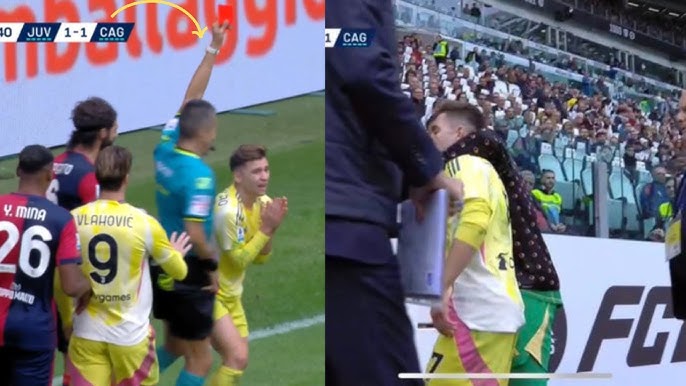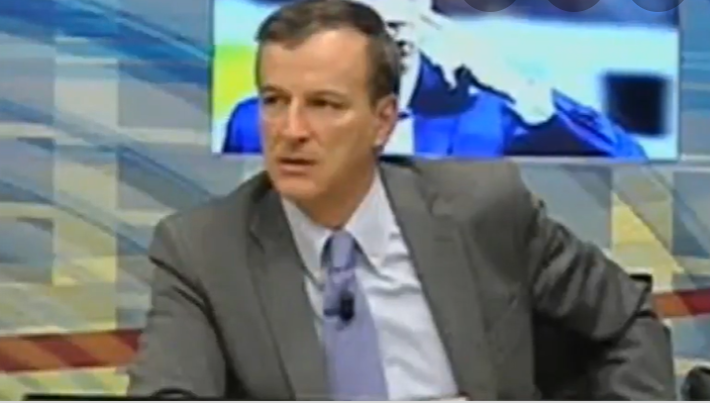ARTICLE AD
October 22, 2024 - 11:00 am

Refereeing controversies continue to dominate discussions in Serie A, with inconsistencies in decision-making drawing criticism from players, fans, and analysts alike. The introduction of VAR was intended to bring greater fairness to football by reducing human errors, but even with technology, controversial calls persist. The situation has sparked frustration, especially among Juventus fans, who feel aggrieved by specific decisions against their team.
The controversy surrounding Francisco Conceição’s red card against Cagliari remains a sore point. The winger was sent off after receiving a second yellow card in what many believed was a harsh decision. Italian referees’ chief Gianluca Rocchi acknowledged that the call was “excessive,” admitting that mistakes have been made this season. His admission aligns with broader concerns about inconsistency in refereeing, with fans and commentators arguing that certain decisions are subject to varying standards of scrutiny.

Massimo Pavan, an outspoken critic, has highlighted the inconsistent use of VAR and decision-making standards in favour of or against Juventus. Speaking to Tuttojuve, Pavan noted the inconsistency between the analysis of incidents. He said, “When I hear Rocchi saying that they didn’t analyze Pellegri’s intervention, we understand everything… when I hear it happened a few weeks ago in an Empoli-Juventus match, but we didn’t analyze it, it was a head-to-head and we decided to stick with the decision on the pitch, I get a few annoying and negative feelings. So on an episode in favour of Juve, you analyze it and it creates a mess, in one against, you don’t analyze it and everything is passed over in hushed silence, good… no?”
Pavan’s comments underscore the frustration surrounding the perceived bias or double standards, which contribute to the growing mistrust in refereeing. It is a situation that is not unique to Juventus, as fans from different clubs have expressed similar grievances regarding decisions that could significantly impact a game’s outcome.
For now, players and coaches seem resigned to the fact that officiating errors are part of the sport, hoping to minimise their impact on results. The hope is that, as technology and training continue to evolve, refereeing decisions will become more consistent and transparent, ultimately improving the game.

 
 

.jpg) 1 month ago
13
1 month ago
13 

